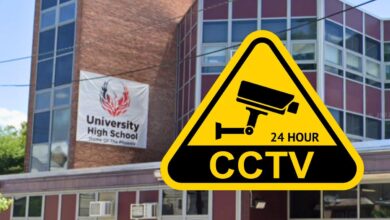Dublin School District First in Area to Pass Artificial Intelligence Resolution | Dublin News

Following a school board resolution last week, the Dublin Unified School District (DUSD) must adopt a formal, district-wide policy on artificial intelligence (AI) to eliminate possible inequities between classrooms. To date, teachers have applied policies that differed from classroom to classroom.
“The resolution is a steppingstone for where we would like to go, to develop a board policy and administrative regulation,” said Dave Wildy, the chief technology officer at DUSD.
The board passed the resolution 3-2 on June 11, with Trustees Kristin Pelham, Kristin Speck, William Kuo, and student Board Member Anika Yu voting yes, and Trustees Gabi Blackman and Dan Cherrier against the resolution. Both Blackman and Cherrier believed that such a policy would be too restrictive in the rapidly evolving space.
According to the resolution, “(Because) AI has become ubiquitous and readily available on multiple platforms, it is urgently important that students and teachers develop critical thinking skills and digital literacy knowledge to make informed decisions.” The resolution goes on to say that the board should adopt a unified policy promoting AI literacy and regulating AI use in order to ensure equity in classrooms.
The resolution was developed by Wildy; Sheri Sweeney, the director of curriculum and instruction at DUSD; and Deeksha Vaidyanathan, who will be a senior at Dublin High School in the next academic year.
AI encompasses a wide variety of tools. In the classroom setting, it’s generally used to refer to two kinds of tools.
The first is generative AI, which describes tools like ChatGPT, where users enter a prompt to which the tool generates an answer. Since ChatGPT’s release in September 2022, it’s raised concerns about plagiarism and the ethics of using it, especially as it’s been proven that generative AI can “hallucinate” factually incorrect responses.
Another AI tool is “human-focused AI,” which is more personalized to the user and can act like a personal assistant or a one-on-one tutor.
DUSD’s resolution asserts that embracing AI study tools responsibly, specifically human-centered AI, and ethically can “enhance student engagement, tailor instruction to individual learning styles, and support students with diverse educational needs.”
Vaidyanathan, who has an interest in AI ethics and has been working on the resolution since August 2023, spoke during public comment. She said, “This resolution could hold immense potential if passed. We’re in favor of promoting flexibility and are looking to incorporate AI tools other than generative AI, like human-focused AI, such as QChat or Khanmigo. I believe AI is meant to be a tool to be used to our advantage, and a clear policy … advocating for responsible and ethical AI in the classroom … is of the utmost importance.”
The trustees who spoke all said that artificial intelligence needed to be addressed in some way.
“Companies are rolling (AI) out and expecting employees to be more efficient,” said Speck. “Students need to know how to use these tools because employers will be expecting it.”
Blackman agreed that AI was here to stay, but that the resolution was flawed.
“Artificial intelligence is a lot more than just a tool,” said Blackman. “It’s moving too fast to develop a resolution that will actually help you structure and train. By the time you’ve done that, the newest version is already out there.”
Blackman believes that there is no way that training will allow people to catch up with the rate of artificial intelligence. She stated teachers needed to be able to experiment rather than being “hemmed in” by the prescriptive language of a district-wide policy.
Cherrier said that he voted no on the resolution because of the third statement in the resolution. It states, “This creates inequitable conditions for students with different teachers in the same subject who have differing AI-use policies.” He said this was unfair wording for teachers who “think outside the box.”
The resolution’s authors will work with an AI subcommittee — a mix of staff, parents and guardians — to develop a board policy to present in early August.



